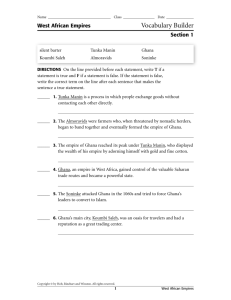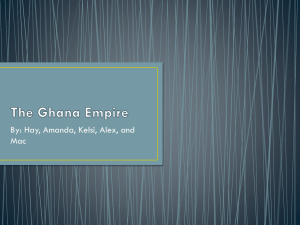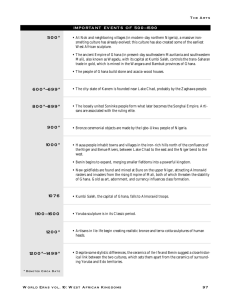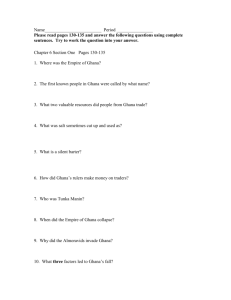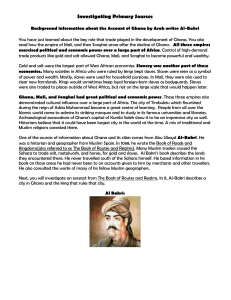Ancient Ghana ("Wagadu"/"Ouagadou")
advertisement
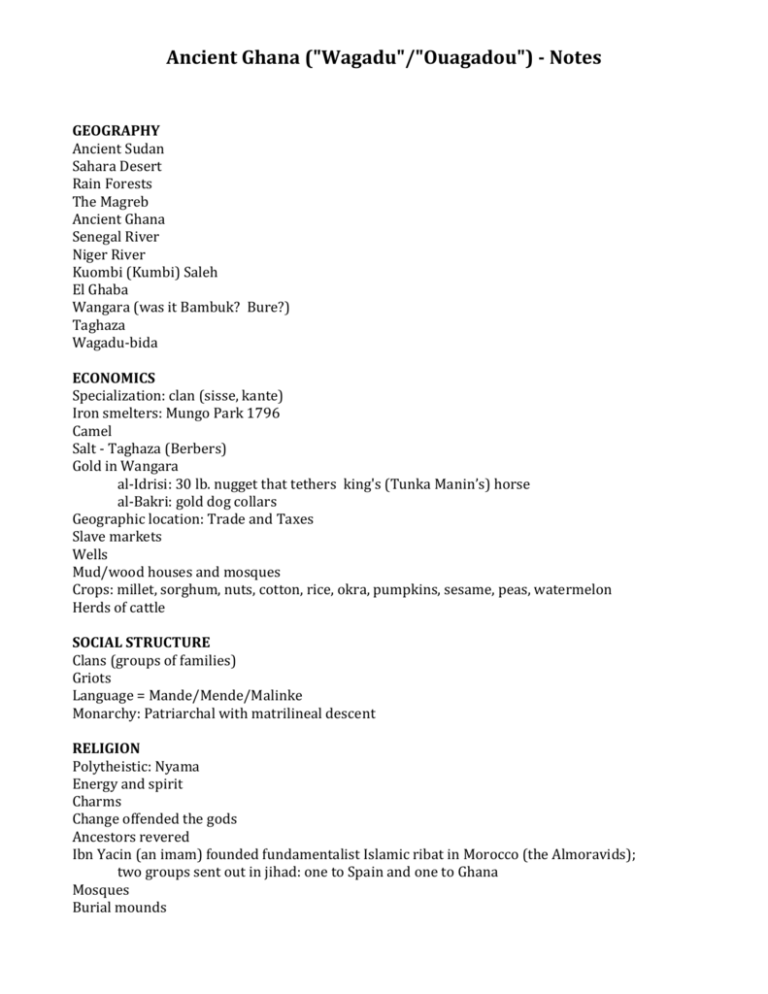
Ancient Ghana ("Wagadu"/"Ouagadou") - Notes GEOGRAPHY Ancient Sudan Sahara Desert Rain Forests The Magreb Ancient Ghana Senegal River Niger River Kuombi (Kumbi) Saleh El Ghaba Wangara (was it Bambuk? Bure?) Taghaza Wagadu-bida ECONOMICS Specialization: clan (sisse, kante) Iron smelters: Mungo Park 1796 Camel Salt - Taghaza (Berbers) Gold in Wangara al-Idrisi: 30 lb. nugget that tethers king's (Tunka Manin’s) horse al-Bakri: gold dog collars Geographic location: Trade and Taxes Slave markets Wells Mud/wood houses and mosques Crops: millet, sorghum, nuts, cotton, rice, okra, pumpkins, sesame, peas, watermelon Herds of cattle SOCIAL STRUCTURE Clans (groups of families) Griots Language = Mande/Mende/Malinke Monarchy: Patriarchal with matrilineal descent RELIGION Polytheistic: Nyama Energy and spirit Charms Change offended the gods Ancestors revered Ibn Yacin (an imam) founded fundamentalist Islamic ribat in Morocco (the Almoravids); two groups sent out in jihad: one to Spain and one to Ghana Mosques Burial mounds POLITICS c.750 CE: Soninke tribe ousts Berbers Griot's story: Dyabe from the east founds Kumbi with his four chiefs descendents - "Wago" (Soninke ruling elite of the Sisse clan) Wagadu kingdom OR: Wagadu was founded by an agreement: Dyabe of the Soninke and Wagadu Bida of Kumbi Wagadu Bida annual sacrifical virgin Sia Amadou Safedokote drought and decline; 7 or 8 heads land on the gold fields (no water or gold for 7 years, 7 months and 7 days) Monarchy: Patriarchal with matrilineal descent capital = Kumbi Saleh (found in 1914) Princes Provinces 900-1100 height of empire 1070 Abu Bakr I (the Almoravids) defeats Tunka Manin (per Arab historian al-Bakri) 1087 Almoravids withdraw after Abu Bakr's death 1180 Soninke from Sosso conquer Ghana Sumanguru of the Kante clan Kumbi falls in 1203

